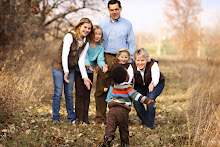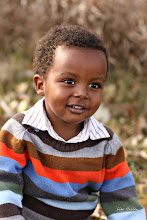Most mornings we come straight home after dropping the girls off at school. However, the mornings I need to do a long grocery run, I sometimes go through a drive thru for a special coffee treat. I almost always order a small, skinny, vanilla latte. I have done this enough that Samson has figured out what I'm doing, thus feeling a little left out since I'm ordering only for myself. So, now he says, "Mommy, can Samson have skinny too?"
Some people may see this as odd that a 2 year old would enjoy coffee in the mornings with his mom. When we were in Ethiopia, we learned a few things about Samson and his heritage. One of those things is that his birth family had coffee trees. We were told that all family members, down to very young children will drink coffee each day. Unfortunately, because of a severe drought in Ethiopia, many families did not have a coffee crop this year.
So, do you know how Ethiopians drink coffee when they don't have coffee beans? THEY CRUSH UP LEAVES FROM THEIR COFFEE TREES AND BREW THE CRUSHED LEAVES IN THE WATER INSTEAD. I will not complain about not having coffee beans to grind for my coffee again.
Why even bother drinking coffee if its only source is from crushed coffee tree leaves? First of all, a simple known fact is that Ethiopia is known as the birthplace of coffee. Coffee serves as an integral part of their social and cultural life. Brewing and drinking coffee each day is a strong Ethiopian tradition.
A traditional Ethiopian coffee ceremony is considered a mark of friendship or respect and is an example of Ethiopian hospitality. We had the opportunity to attend two special coffee ceremonies in Ehiopia. The first was after our birth family meetings and again at our guest house on the day we were departing.
The coffee is served in cups and offered with sugar and sometimes cream. For each of our ceremonies, we were also served tender-kernelled popcorn.
Like, I mentioned, I am running low on my Ethiopian coffee beans and I wish to purchase more. I forgot to mention that any Ethiopian coffee that I have tried has been the best I've ever had. So good that I really don't enjoy any other coffee as well but again, I'm not going to complain. Anyway, I want to purchase some more real soon. And since I probably will not be traveling there in the near future, I plan to order from one or each of these sights that come highly recommended. The beauty of this coffee is that it is fair trade and it supports orphans in Africa.
Check them out:
Saints Coffee
Gobena
I do feel a little conflicted, however, when I can order Ethiopian coffee beans by the click of a few buttons and a family in Ethiopia is relying on coffee tree leaves for their coffee. Coffee is not something to take for granted anymore.



.jpg)







.jpg)



1 comment:
Remind me in two years and I'll try to bring you some from here! Sometimes we can get Ethiopian coffee in Djibouti.
Post a Comment